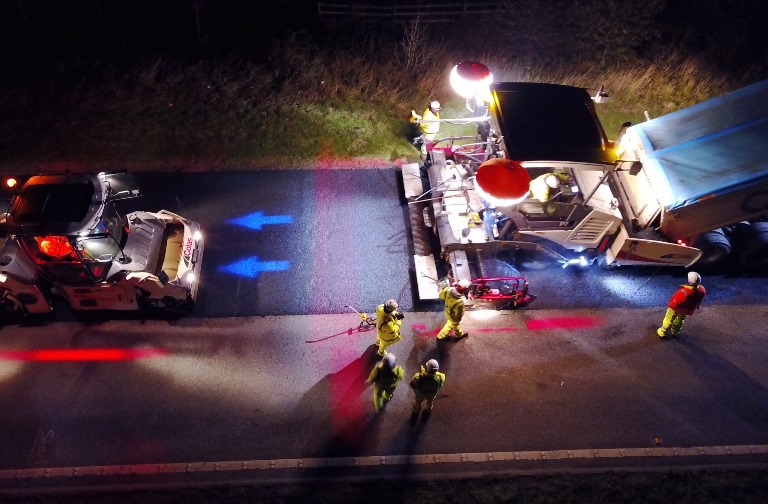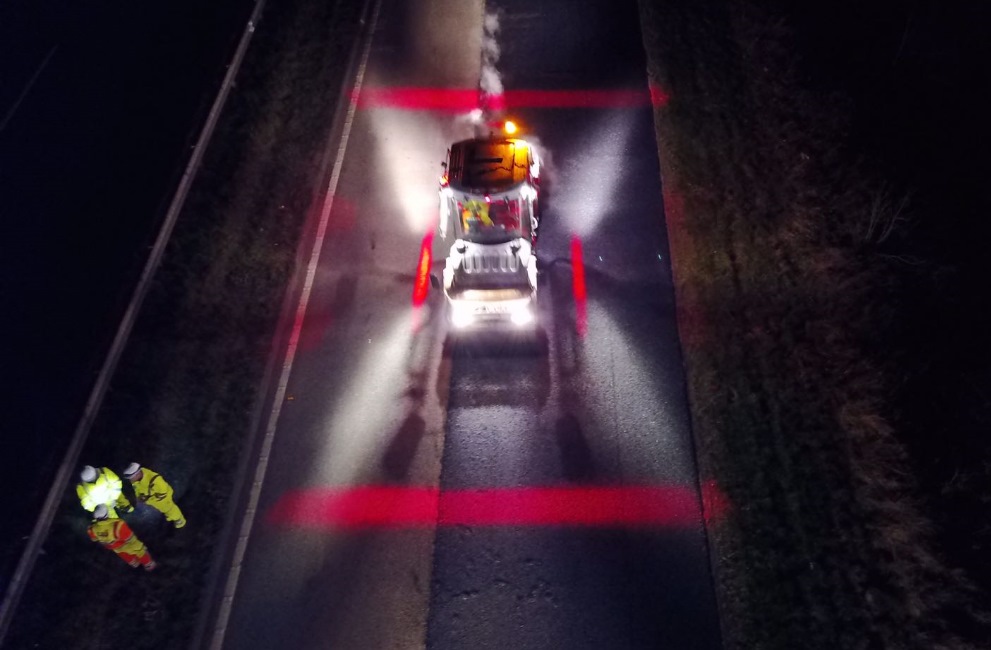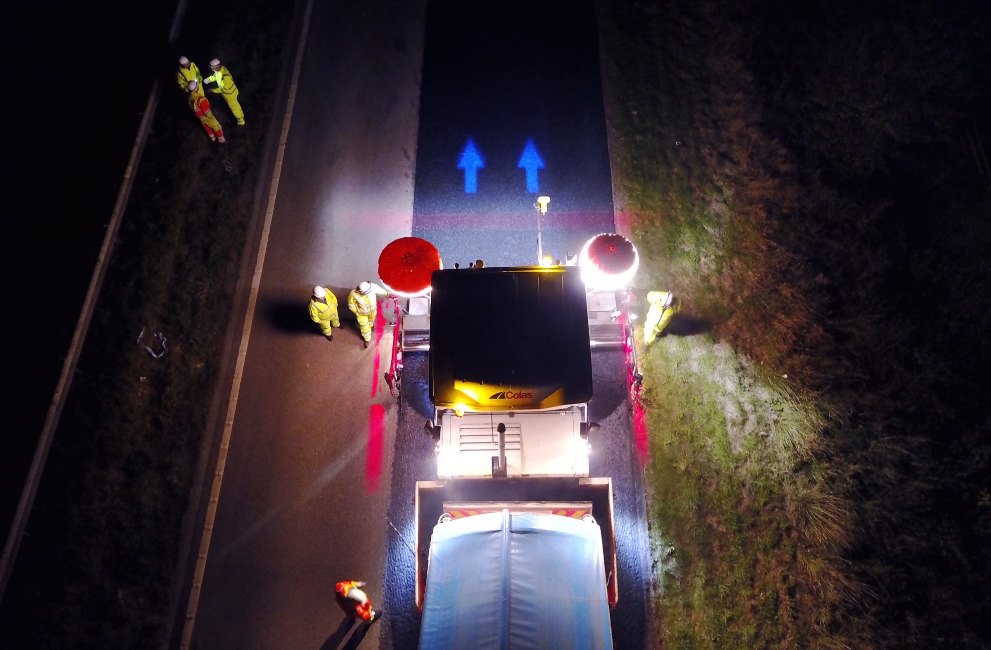And finally… Red lights used to mark danger zone around construction machinery
Engineering firm Colas has teamed up with construction machinery specialist Highway Service to maximise on site safety by beaming a clear red danger zone around its biggest machines.
Colas believes the system will make a significant difference in terms of on-site safety – preventing accidents and saving lives. The firm’s objective is to reach zero incidents in use of construction machinery and to maximise safety of night-time working on site.

The red zone was inspired by Colas UK. In a drive for ongoing reduction in accidents linked to stringent health and safety measures around the use of high-risk machines, Colas engaged with Highway Service to come up with a way to help keep its staff safe. The Newcastle-based business devised an innovative, cost-effective solution, so that no Colas staff could be in any doubt about danger points around the most high-risk machines. The red beam is a visible warning to operatives that they are in the danger area if they are inside the red line.
Although it has no commercial interest in the system, Colas hopes to see it adopted throughout the industry, and is keen to share this within the international Colas Group, and is delighted other UK contractors are already expressing interest.
Carl Fergusson, CEO at Colas UK, said: “Our approach at Colas is to inspire, pioneer and freely share improvements to safety. Our Colas Group innovation campus outside Paris is devoted to research and puts us at the cutting edge in responding to, or pre-empting, technical and social challenges by fostering the development of new products, processes and techniques.”

Mr Fergusson added: “As a major player in the UK alongside our expertise from the rest of the world, we are keen to foster relationships with other expert UK businesses which create innovative solutions which will be good for the whole industry – not just ourselves. We want to share this technology and are already sign-posting other firms to the developers, Highway Service.”
Working with Colas operational teams, Highway Service took existing technology and developed it to create an unmistakable LED-lit red zone around the Colas construction machines. Throwing a light cordon around pavers and rollers leaves Colas staff in no doubt where workers and vehicles should be – and where they should not venture.
The system uses LED lights located on top of the machine or on the canopy. At night, these throw a clear red box around the vehicle, marking out a solid red line around the sides of the machine to a standard distance of two metres. This can be extended to match the size of the paving activity at the rear of the machine with a five metre clearance at the back in the case of pavers. This can be both front and back in the case of other big machines. The system also includes blue arrow lights, which make clear to the roller drivers the extent of the exclusion zone at the rear of the paver.

Highway Service experimented with different methods and used the LED lights because lasers are potentially harmful to sight. Only designated and authorised operatives should be in the zone and could be either inside or out as detailed in the site personnel’s Risk Assessments and Method Statements.
Highway Service has recently finished installing its safety system on all Colas vehicles operating out of the firm’s Newcastle depot.
Lee Corbett of Highway Service said: “We have been delighted to work closely with Colas on this project and we are really pleased with the results.”
Mr Fergusson added: “This type of knowledge transfer and collaboration in our industry is a strong example of the new direction of Colas in the UK, underpinned by our commitment to a safe, quality operational environment for our workforce.”













